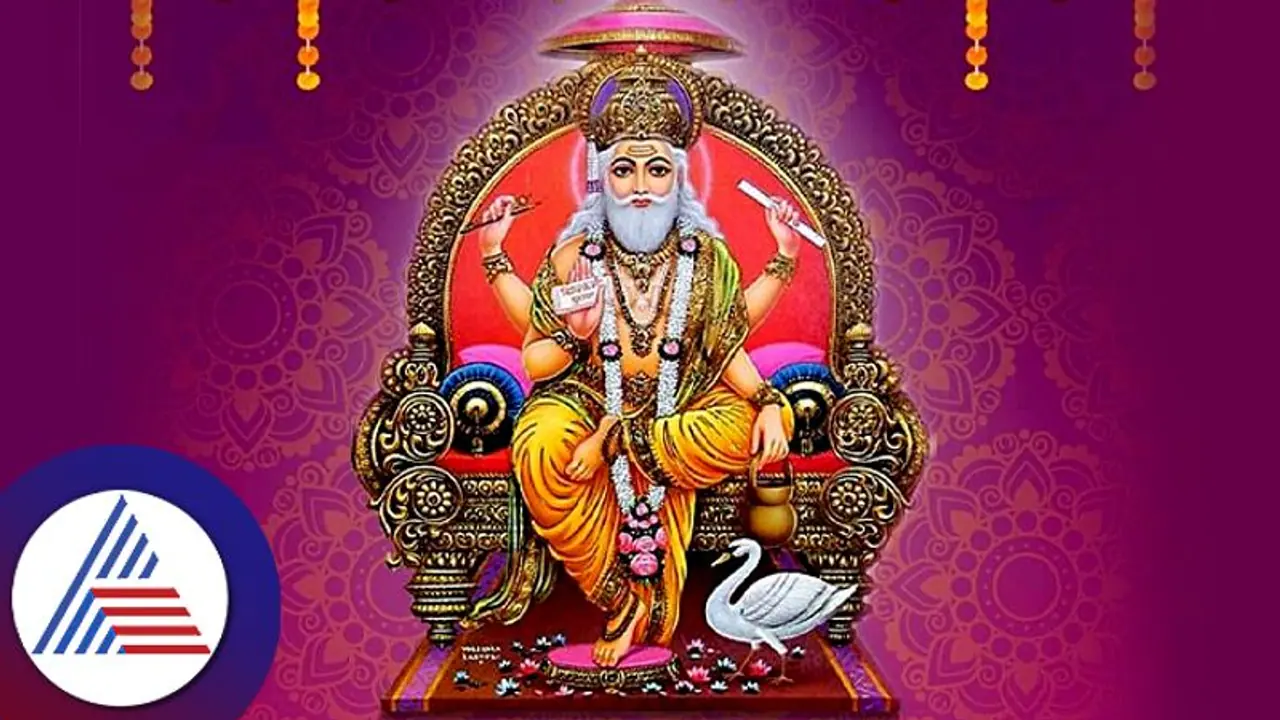Vishwakarma Jayanti is a significant festival celebrated in India to honour Lord Vishwakarma, the divine architect and craftsman. This festival is particularly observed by people engaged in various professions, especially those related to craftsmanship and manufacturing
Vishwakarma Jayanti is a significant Hindu festival celebrated in honour of Lord Vishwakarma, who is considered the divine architect and craftsman in Hindu mythology. This festival is observed predominantly by people involved in various forms of craftsmanship, including artisans, engineers, architects, mechanics, and factory workers. It typically falls on the 17th or 18th of September each year, according to the Hindu calendar.

The festival holds great importance in regions of India where manual labour and craftsmanship are integral to the economy and culture. Lord Vishwakarma is believed to be the creator of the universe and the one who crafted the divine tools and machines used by gods. As such, he is revered as the patron deity of artisans and craftsmen.
This festival is particularly observed by people engaged in various professions, especially those related to craftsmanship and manufacturing. Here are some of the rituals and customs associated with Vishwakarma Jayanti:
Fasting and Prayer: Many people observe a fast on Vishwakarma Jayanti and visit temples dedicated to Lord Vishwakarma. They offer prayers seeking his blessings for success and prosperity in their respective professions.
Cleaning and Decorating Workspaces: On this day, workshops, factories, and workplaces are thoroughly cleaned and decorated. It's common for workers to perform aarti (a ritual of worship involving a lit lamp) and seek Lord Vishwakarma's blessings for a productive and safe working environment.
Craftsmen's Pujas: Craftsmen and artisans often conduct special pujas (prayer rituals) at their workplaces. They decorate their tools, machinery, and workstations with flowers and apply tilak (a mark on the forehead) to machines and equipment as a sign of reverence.
Distribution of Prasad: Prasad, which is a sacred offering, is prepared and distributed among workers and colleagues. It often includes sweets, fruits, and other items considered auspicious.
Craftsmen's Procession: In some regions, processions and parades are organized to celebrate Vishwakarma Jayanti. Craftsmen and labourers participate enthusiastically, showcasing their skills and craftsmanship.
Flying Kites: Flying kites is a popular tradition during this festival, especially in states like Gujarat and Rajasthan. It adds a sense of festivity to the celebrations.
Craft Exhibitions: In various parts of India, craft exhibitions are organized to showcase the skills and creativity of artisans and craftsmen. These exhibitions promote traditional art forms and provide a platform for artisans to display their work.
Offerings to Tools: People offer prayers to their tools and equipment, acknowledging their importance in their livelihoods. This act symbolizes respect for the tools that assist them in their professions.
Community Celebrations: Vishwakarma Jayanti is a time for community gatherings and social interactions. People come together, exchange greetings, and share their experiences and knowledge with each other.
Auspicious Beginnings: Many people consider Vishwakarma Jayanti an auspicious day to start new projects, purchase machinery, or inaugurate workshops. They believe that by doing so on this day, they will receive Lord Vishwakarma's blessings for success.
Vishwakarma Jayanti is not only a celebration of craftsmanship and labour but also a time to reflect on the importance of skilled work in society. It fosters a sense of community and camaraderie among people engaged in various professions and serves as a reminder of the value of hard work and dedication.
